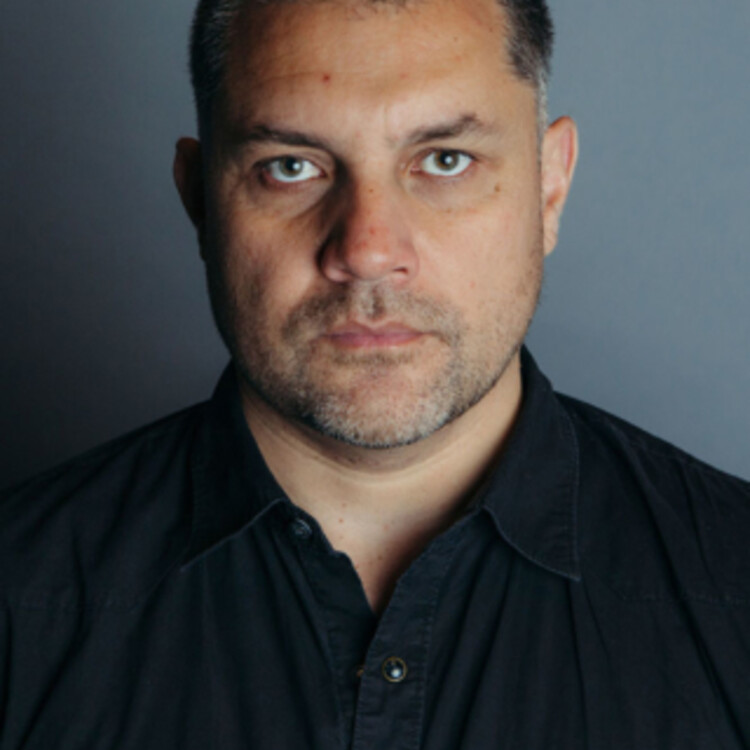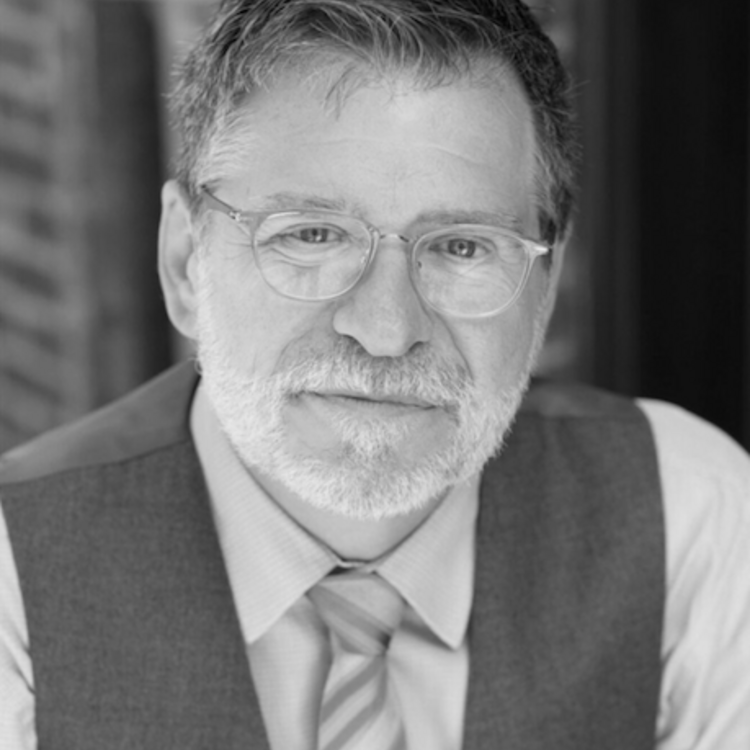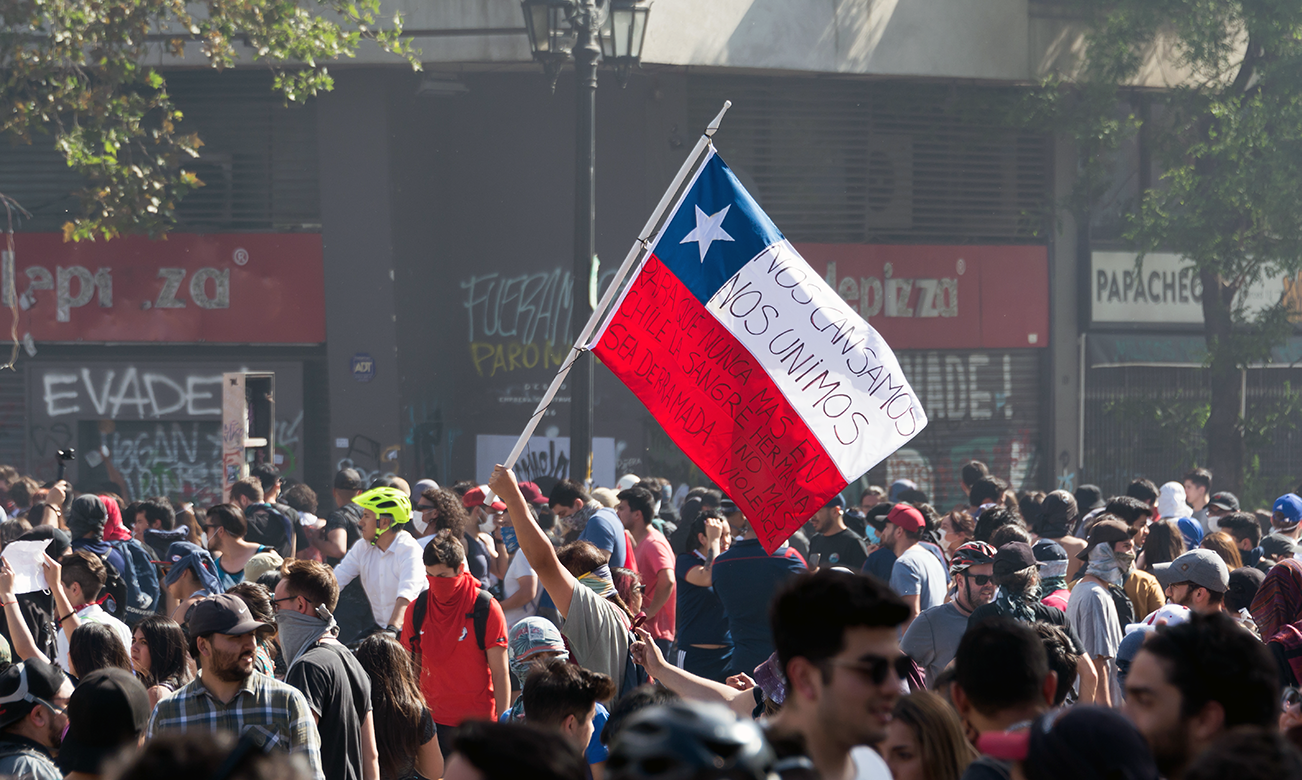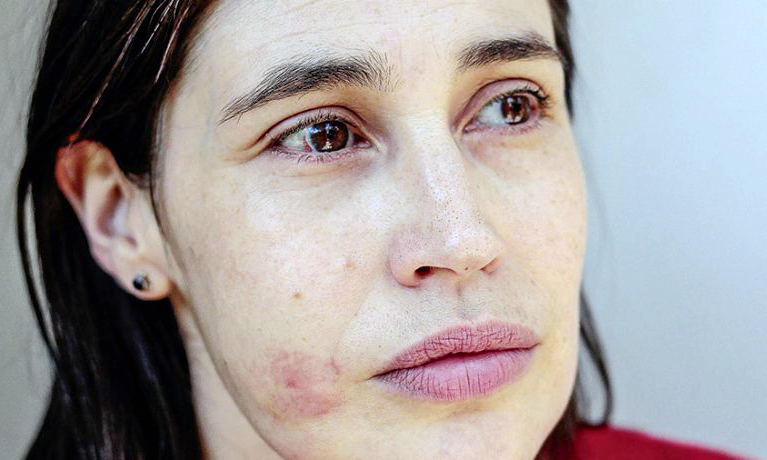For some years now, I have been attending the annual Santiago a Mil Festival in Santiago, Chile. It is an ambitious, expansive, and exciting international festival that takes place every January. ArtsEmerson has also presented a number of Chilean works in our seasons, including both Neva and Kiss, plays by Guillermo Calderón (the latter of which I directed at ArtsEmerson). Calderón is a renowned playwright, screenwriter, and director of both stage and film. His works frequently sit at the intersection of theatre and activism, with commissions at both the Public Theater and La Jolla Playhouse in the United States, and his work tours internationally. I caught up with him on 13 November to get a perspective on the situation in Chile, in light of the ongoing protests.
David Dower: I’d like to get a sense of what’s happening on the ground in Chile, how artists are responding, and what kind of support people from outside the country can offer the artist community there. Can you give me a bird’s eye view of what’s happening right now?
Guillermo Calderón: We are three weeks into a political crisis. It’s a very bad situation for everyone here. It started on October the 18, when the government decided to call a state of emergency, which is a state in which they allow the military to take over the policing of the main citizens in Chile. This all started because young high school students were jumping over the turnstiles in the metro system, protesting a rate increase. That turned into a massive protest in which people were protesting over measures imposed by the government over the years.
They were also protesting the dire conditions a lot of people live in because of a radical neoliberal system that has been funneling the earnings of the country into the hands of a few rich people. Many people live under the poverty line; they don’t get much from the system. The pension system is really broken. People retire to become poor, the health system is bad as well, and the metro fare is higher than New York City. It’s very unfair.
It’s scary because there’s no sense of, I want to say, “nation.” People don’t seem to feel like they belong in the same country. People who own money want the country for themselves and they don’t want to address these issues, they haven’t done so in thirty years. Poor people feel like they don’t belong in Chile; they don’t participate in the economy and don’t have a stake in the future of the country. People are wondering where the violence in the protest is coming from, and of course it’s coming from accumulated resentment over the years.
We had a week of curfew, which meant that nobody could leave their house after 7 p.m., or sometimes 8 p.m. or 10 p.m., which would end by 6 a.m.. The military were policing the main cities. That was very scary because of course the military is not trained to manage crowds. They start shooting in the crowds.





Comments
The article is just the start of the conversation—we want to know what you think about this subject, too! HowlRound is a space for knowledge-sharing, and we welcome spirited, thoughtful, and on-topic dialogue. Find our full comments policy here
Guillermo, what is happening in Chile saddens and angers me greatly. My heart goes out to you and all the people who make theatre and feel like it is just not the time. I wish you and your family safety and community amidst this chaos. But my hope is with you that the festival will be able to take place as planned in the new year, and that we will be able to hear again your beautiful playwright's voice. Much love to you and your family and compadres.
Joan